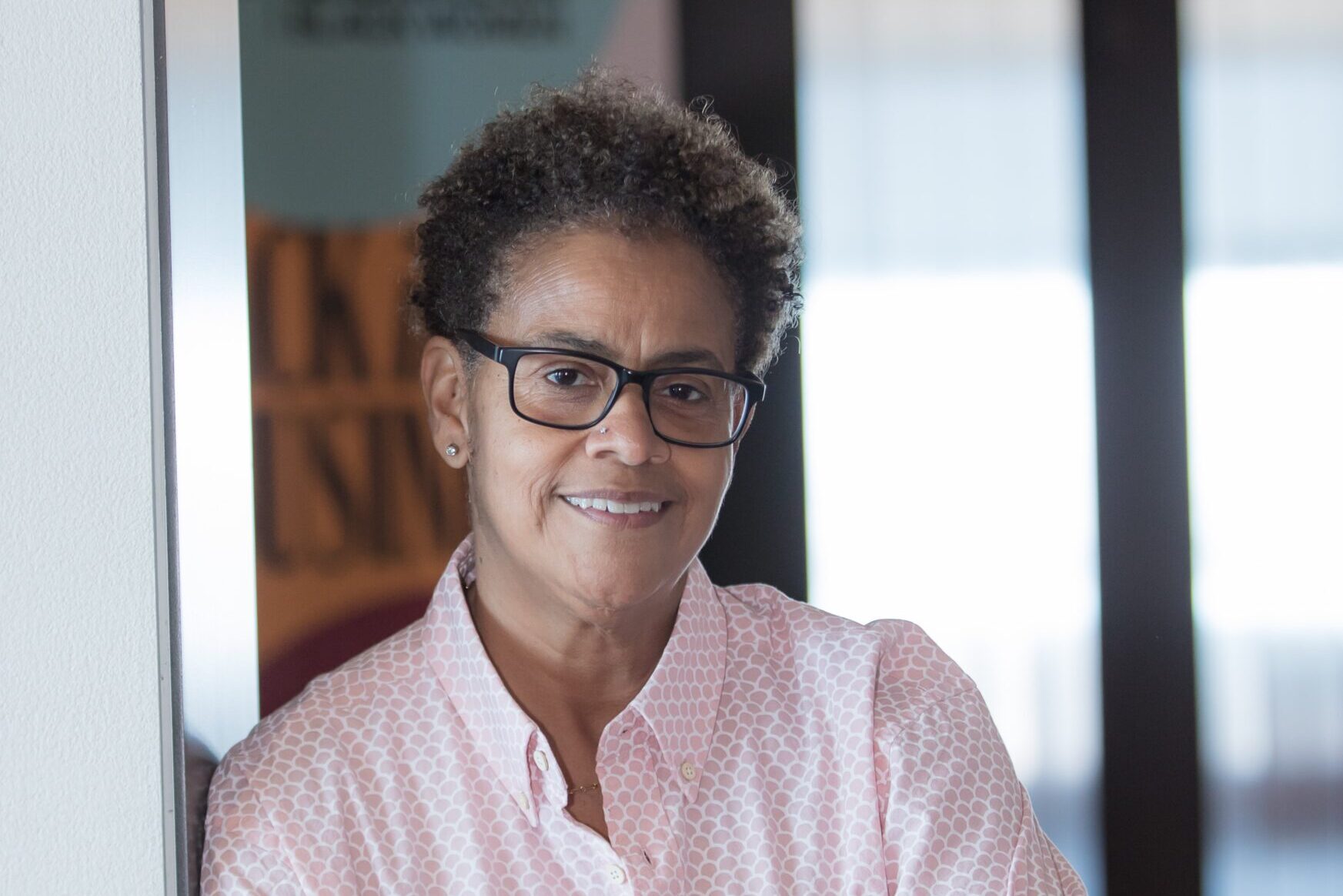Memphis is laying the foundation for how other cities across the country should support Black entrepreneurs and businesses. The pathway to entrepreneurship in the city is paved with an ecosystem of opportunity, resources, and programs, unlike any other in the nation. It is home to nonprofit organization Epicenter, which is on a mission to raise $100 million to help innovators, Black tech entrepreneurs and professionals thrive in their respective industries.
Through a combination of programs such as The 800 Initiative, The Summer of Acceleration, Propel, and CO.STARTERS, Epicenter is building the ultimate entrepreneurial landscape for Black founders. The city is keeping business owners at the center of the action by providing resources, spaces to build their companies and capital to fuel their growth.
AfroTech spoke with leaders in Memphis to talk about how their economic ecosystem is changing the faces of entrepreneurs to look more like the residents who reside there.

President and CEO of the Greater Memphis Chamber, Beverly Robertson believes the city is leading the way when it comes to building an entrepreneurial ecosystem that reflects the community.
Over 60 percent of residents in Memphis are Black, making the area a minority-majority district. Entrepreneurs of color are centered in the work done by Epicenter.
Through its programs, partnerships, and initiatives, Regina Campbell, who is the chief program officer at Epicenter, ensures that innovators are provided the resources, access, and capital they need to thrive.
“At Epicenter, we work with a network of partners to offer a variety of programs that support our community, from ideation to growth,” said Campbell.
Two examples of programs that help founders in the ideation stage include Getting Started and CO.STARTERS.
“These programs in particular are open to [any] industry and help aspiring entrepreneurs with tools to move their business ideas to action,” said Campbell. “I also love how these programs invite the community to entrepreneurship. In our inclusive economy work, we are also proud to be a partner in The 800 Initiative, a program that supports Black-owned businesses with growth.”
Although there are 39,800 black-owned businesses in Memphis, only 800 of them have paid employees. Conversely of the 26,300 white-owned businesses in Memphis, over 7,000 have paid employees. The 800 Initiative’s primary focus is to grow the 800 minority firms with paid employees’ revenue by $50 million in five years.
Programs like the 800 Initiative can act as a domino effect to improve the city’s economy. When businesses are supported, they obtain capital, which positively impacts communities and the city’s revenue.
“Finally, our critical capital programs help us with launching and growing businesses,” she added. “Without accessible capital, Black businesses are unable to bring new ideas to market and/or pivot and grow with a new product or service. We’ve seen with COVID-19 the importance of capital for Black businesses, and I am proud of the work we do with our network of partners to support Black businesses.”
Joann Massey, who is the Director of City of Memphis Office of Business Diversity and Compliance, hopes that these programs will increase the revenue capacity and opportunities for Black people not only in Memphis but across the nation.
“We don’t have the generational wealth transfer like other races because we were deprived of opportunities to build,” said Massey.
She made the point that even when Black Americans had the opportunity to build, racial attacks took place in many communities like the Tulsa Massacre in 1921 and the Rosewood Massacre in 1923, preventing Black residents from thriving.
With Epicenter’s initiatives, Robertson believes that more Black people will move to places like Memphis because they have resources specifically designed to support budding entrepreneurs.
“One of the biggest hurdles for entrepreneurs involves securing capital and consulting support,” said Robertson. “Providing a diverse range of resources that are triaged through one organization makes access to critical tools easier and supports the scalability and expansion of entrepreneurial businesses.”

In addition to capital, Robertson, Massey, and Campbell all emphasize the importance of community. Getting plugged into an entrepreneurial network is critical to business growth.
Massey says that many people suffer from “independent-itis,” which is the concept of thinking we don’t need to reach out to others and we don’t expect people to help us.
“As someone who has stopped and started businesses, I have had to ask for help, too,” said Campbell. “Push past fear to bring your idea forward into the marketplace. If you don’t do it, someone else will. Start by contacting your local entrepreneurial hub. In Memphis, Epicenter has a team that will, with care, triage your next steps and/or refer you to the right resource at the right time. Afterward, the next step is to take action with the advice or direction given. Action must always be a part of the entrepreneurial journey.”
Because this journey is about more than just the individual.
“Entrepreneurship is an economic engine for social mobility in our communities — Black businesses hire Black residents, thus building an economic base that helps build vibrancy in neighborhoods,” said Campbell. “So, why not entrepreneurship?”

Black innovators and entrepreneurs can help move the culture forward, while also strengthening neighborhoods and impacting economic growth. When Black innovations and businesses are supported, Massey says it’s a game-changer. Companies in Memphis such as Black-owned construction company, Fifer & Associates and professional service firm, AllWord Project Management are living proof.
Massey believes that entrepreneur ecosystems nationally can learn a lot from the city of Memphis. The city’s resilience, its effort to collaborate across industries, and support for Black businesses have been credited to its success. Campbell agrees.
“Collaboration is key… here, we have public, private, and non-profit sectors working together to grow innovation and help Black businesses scale. We aren’t afraid to call out the need for support to Black businesses, and we aren’t afraid to try new things and take risks.”
The accumulation of programs, support, and collaboration are why Black entrepreneurs should consider Memphis as the ideal city to start and grow a business.
“Our market has been praised for its work to be an inclusive ecosystem for entrepreneurism,” Robertson said. “That effort is bearing fruit. Memphis is recognized as a top market for Black entrepreneurs, for Black technology companies and for funding for Black-led startups. We have work to do in this space, but we are proud of the progress we have made.”
To learn more about programs and opportunities in Memphis as a way to start or grow your business or idea, visit Epicenter’s website here.
















